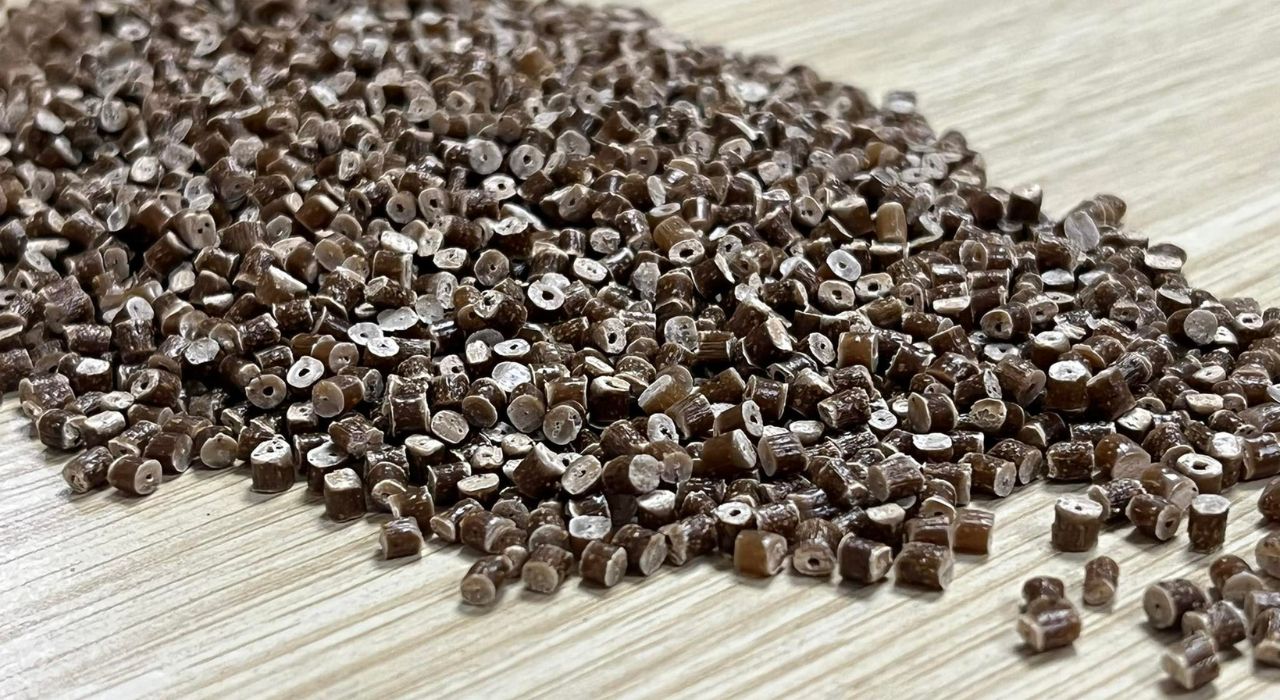Bio-Based Plastics: A Solution for a Cleaner and Healthier Planet
Bio-based plastics have emerged as a promising solution for reducing the environmental impact of traditional plastics. With the increasing concern over plastic waste and pollution, more and more companies are turning to sustainable alternatives. This kind of plastics, made from renewable resources such as plants and agricultural waste, offer a cleaner and healthier solution for our planet.
In this blog, we will explore the benefits of bio-based plastics, the manufacturing process, and their potential to revolutionize the industry. Join us as we dive into the world of bio-based plastics and discover a sustainable future for our planet.
What are bio-based plastics?
Bio-based plastics are a type of plastic made from renewable biomass sources like plants, agricultural waste, and algae. They are also known as bioplastics and are becoming increasingly popular due to their eco-friendliness and potential to reduce the dependency on fossil fuels.
One notable example of bio-based plastics is coffee-based plastics produced by AirX.
To produce coffee-based plastics, the coffee grounds are collected, cleaned, and transformed into a bio-based resin through a process that uses less energy and produces less waste than traditional petroleum-based resins. This bio-based resin can be molded into various products, from coffee cup lids to phone cases. The resulting products are biodegradable, carbon negative and reduce the amount of plastic waste.

Bio-based plastics are produced using a variety of processes, including fermentation, chemical synthesis, and enzymatic reactions. They can be designed to have the same properties as traditional plastics, including strength, durability, and flexibility, but with the added benefit of being more sustainable and environmentally friendly.
One of the key advantages of bio-based plastics is that they are derived from renewable resources. This means that they are not dependent on the limited supply of fossil fuels and are therefore more sustainable in the long run. Additionally, these plastics can help reduce greenhouse gas emissions and contribute to a more circular economy, where waste is reduced and resources are reused.
There are many different types of bio-based plastics, including biodegradable plastics. Biodegradable plastics can break down into natural compounds, such as water and carbon dioxide, under specific conditions, while compostable plastics can break down into organic matter and contribute to the soil.
However, it is important to note that not all biodegradable and compostable plastics are created equal, and some may require specific conditions to properly decompose.
In conclusion, bio-based plastics offer a promising solution for a cleaner and healthier planet. By utilizing renewable biomass sources, these plastics can reduce our reliance on fossil fuels and contribute to a more circular economy. However, it is important to carefully consider the environmental impact and sustainability of each type of bio-based plastic and ensure that they are properly disposed of to avoid contributing to the already existing plastic waste problem.
Can bio-based plastics be a solution for a cleaner and healthier planet
Bio-based plastics are becoming increasingly popular due to their eco-friendly nature and their ability to reduce environmental impact. Compared to traditional plastic products made from petroleum-based materials, these plastics offer several environmental benefits.
First and foremost, bio-based plastics are made from renewable resources such as vegetable oils, corn starch, and sugarcane. These materials can be replenished quickly and sustainably, which reduces our dependence on non-renewable resources. This, in turn, decreases the carbon footprint of the production process and reduces greenhouse gas emissions.
Another major environmental benefit of bio-based plastics is their biodegradability. Bio-based plastics break down naturally in the environment, which reduces the amount of waste that ends up in landfills and oceans. This is especially important as traditional plastic products can take hundreds of years to decompose, causing long-lasting environmental damage.
For example, AirX produces coffee-based plastics that can biodegrade into biomass, water, and Co2 within 12 months. The resulting products of this process can nurture plant life, which is then used to produce other forms of bio-based plastics, creating a closed-loop life cycle.
Coffee-based plastics also offer a unique environmental benefit, as they are made from coffee grounds, which would otherwise end up in landfills. By using coffee waste as a raw material, we can reduce the amount of organic waste that ends up in landfills, which in turn reduces greenhouse gas emissions and promotes sustainable waste management.
Coffee-based bio-based plastics also have a lower carbon footprint than traditional plastics, as the coffee grounds used as a raw material absorb carbon during the growth process. This creates a carbon-negative product, which means that the production of coffee-based bio-based plastics actually removes carbon from the atmosphere, rather than adding to it.
Overall, bio-based plastics offer significant environmental benefits over traditional plastics, and coffee-based plastics are a particularly unique and sustainable solution. By reducing our dependence on non-renewable resources, decreasing waste, and lowering carbon footprints, these plastics can play an important role in creating a cleaner and healthier planet.
Bio-based plastics manufacturer
AirX, the world’s first carbon-negative bio-material made from coffee grounds manufacturer, is a prestigious bio-based plastics manufacturer that has been leading the way in producing sustainable and eco-friendly products.

The company specializes in the production of bio-based composites from recycled carbohydrates derived by-products, including coffee grounds, coconut husk, sugarcane bagasse, and bamboo. By using these raw materials, AirX is able to create bio-based plastics that are not only sustainable but also biodegradable, providing a closed-loop system that benefits the environment.
AirX’s commitment to sustainability is evident in every aspect of their business. They utilize a zero-waste approach to production, ensuring that all materials are utilized and nothing goes to waste. Their manufacturing process also produces minimal carbon emissions, making their products carbon negative.
AirX has gained recognition from consumers and industry professionals for its innovative approach to creating sustainable products. The company has partnered with many global corporations such as Paula’s Choice, Roche, Porsche, and more.
Aside from their commitment to sustainability, AirX also values innovation and technology. They constantly invest in research and development to create new and improved products that are both sustainable and technologically advanced.
Overall, AirX is a leader in the bio-based plastics industry, providing eco-friendly solutions that are both sustainable and technologically advanced. Their commitment to sustainability and innovation has earned them a reputation as one of the most prestigious bio-based plastics manufacturers in the world.
>>> Learn more: Bioplastic Products: Are They Truly Sustainable?
Contact us
AirX is the world’s first carbon-negative bio-material made from coffee grounds manufacturer.
We specialize in producing bio-based composites using recycled carbohydrates derived from by-products such as coffee grounds, coconut husk, husk, and bamboo. Our goal is to promote sustainability through the use of eco-friendly materials.
We are always here to help and provide the best service possible. If you have any questions or would like to receive advice and feedback directly from our sales staff, please do not hesitate to contact us. You can reach us through:
- Whatsapp: +84 969 742 950
- Email: [email protected]
We look forward to hearing from you!

